Rolling Stone’s ‘The 500 Greatest Albums of All Time:’ The good, the bad and the 70s
Editor’s note: This is part one. Part two comes comes out Monday.
When I first showed Rolling Stone’s 2020 revision of “The 500 Greatest Albums of All Time” to my brothers, they balked in disgust. Looking through the list, their disappointment only grew. I wondered if this is everyone’s reaction to seeing the list, or if my brothers are just overly critical people. I decided to set out on a mission: Dissect the list, listen to as many albums as I could and formulate my opinions on all of them. I also wanted to to give fresh takes on records I’ve already listened to. So, here I will be going down the entire list, and highlighting the albums I have the strongest opinions about.
491: Harry Styles, “Fine Line”
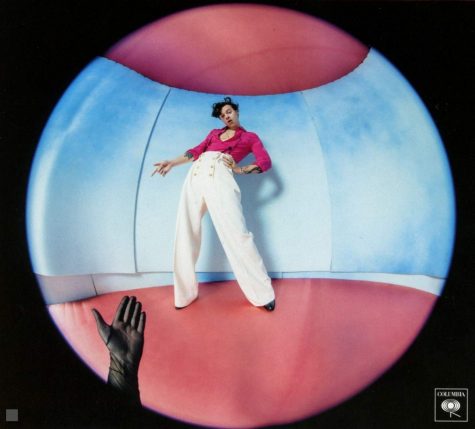
Its ugly—albeit iconic—cover art aside, “Fine Line” is a quality album. Harry Styles is known to be somewhat of an enigma within pop music, to the point where many question whether his music should even be considered pop. There’s validity to that on “Fine Line.” Styles has a tasteful variety of influences, most of them being from 7os rock artists like Fleetwood Mac and David Bowie (and even a Coldplay sample in “Sunflower, Vol. 6”).
“Fine Line” uses sounds inspired by psychedelia to create a spirited summer album. Light and breezy “Golden” has a humidity to it that makes the song feel fresh, yet nostalgic (although the “da da das” can become irritating after repeated listens). The piano riffs and choir vocals on “Lights Up” are charmingly eerie, and “Sunflower, Vol. 6” sounds like a pleasant fever dream. “Fine Line” ends the album on a profoundly pensive note, each lyric having the potential to be unfortunately merchandised on a t-shirt.
Sometimes Styles seems to drown in his influences. A prime example is in the song “She,” which, despite being a fantastic song musically and vocally, seems so caught up in being a Pink Floyd rip that it sometimes forgets to have its own identity. This aside, “Fine Line” is certainly no sophomore slump.
375: Green Day, “Dookie”
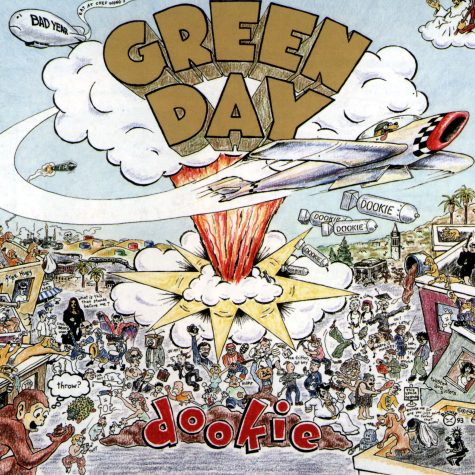
Though it’s ranked lower than Green Day’s “American Idiot” (248), “Dookie” is by far the superior album. While this album did
inspire a generation of pop punk albums to follow, it should be recognized as a special album in its own right. The band showcases a strong musical ear and Billie Joe Armstrong’s oblique vocal harmonies give them a unique sound. In fact, all of the band members are on top of their game on this album with bassist Mike Dirnt delivering one of the most memorable basslines in modern rock music in juvenile “Longview.”
While singles “Basket Case” and “When I Come Around” are some of Green Day’s quintessential radio hits, the deep cuts make the album. The often forgotten “Pulling Teeth” is delightfully disturbing, blending peppy music with dark lyrics: “Is she ultra-violent? Is she disturbed?/I better tell her that I love her/Before she does it all over again/Oh God, she’s killing me!” It’s truly just a pleasure to listen to; the band clearly enjoyed making it. Drummer Tré Cool even makes a cameo in a hidden track, the hilarious “All By Myself.”
216: Elliot Smith, “Either/Or”

No one listens to singer/songwriter Elliot Smith when they’re happy. Lying beneath soft vocals and lofi acoustics, Smith’s songs have a real vulnerability and an authentic somber tone. On “Either/Or,” consecutive songs “Between the Bars” and “Pictures of Me” are high points. “Between the Bars” is satisfyingly unsettling, and “Pictures of Me” is about as lavishly epic as Elliot Smith gets; it feels like the climax of a musical. Another highlight is the sarcastic “Ballad of Big Nothing” which features uplifting rock-inspired instrumentation as the backdrop for a bitter message about drug use.
Elliot Smith is one of those artists where you never quite know, or want to know, what his songs are about. Though, it’s not difficult to get a picture of the characterization of Smith himself, his notorious low self esteem is jarring in “Rose Parade” as he croons, “When they clean the street, I’ll be the only shit that’s left behind.”
217: Oasis, “Definitely Maybe”
Before it was all media fights and cocaine, Oasis was just another Britpop band. And their first full-length album “Definitely
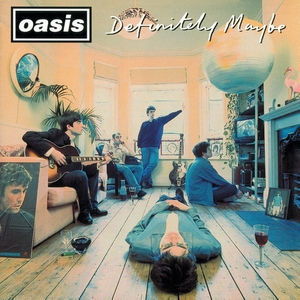
Maybe” was lightning in a bottle. Its upbeat songs are its best, with opener “Rock n’ Roll Star” joining the ranks of “Loser” by Beck and “Teenage Dirtbag” by Wheatus as being the best songs for teen movie intros. Lead singer Liam Gallagher boasts an attitude in “Cigarettes and Alcohol” that most singers could only dream of replicating. And “Live Forever” could be argued as Oasis’ magnum opus, showing an optimism that only the best Oasis songs have: “Maybe I will never be/All the things that I wanna be/Now is not the time to cry /Now’s the time to find out why.” The vocals are pushed to the front in genuinely heartbreaking “Married With Children,” a song that foreshadows Liam and Noel Gallagher’s infamous feud.
The b-sides on this album are better than most album’s best songs, with deceptively simple “Sad Song” having some of the most somber lyrics Noel has penned: “Where we’re living, in this town/The sun is coming up and it’s going down/But it’s all, just the same at the end of the day.”
113: The Smiths, “The Queen Is Dead”
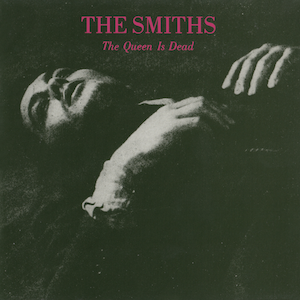
It’s difficult to “get” The Smiths until you cry to one of their songs after your parents yell at you. However, once it’s fully understood, The Queen is Dead is one of the most focused albums to come out of the eccentric decade’s music scene. Contrary to the synths and distortion of most 80’s rock, The Smiths’s sound is like a jangly take on the New York Dolls. From the bouncing bass grooves on “Cemetry Gates,” to the witty social commentary on “Vicar in a Tutu,” the band proves to be consistently compelling throughout the record. The finest of these songs is “There Is a Light That Never Goes Out,” which somehow displays both grandiosity and sublime subtlety.
If lead singer Morrissey is anything, it’s brutally honest, as he declares in the detesting “Frankly, Mr. Shankly:” “I’d rather be famous than righteous or holy.” He stuck to his word.
99: Taylor Swift, “RED”
This ranking is beyond generous. While “RED” is diverse, this ultimately kills the album. Indie-sounding “State of Grace” is
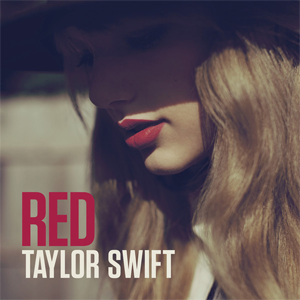
certainly an early highlight and “All too Well” is as brilliant as it is iconic, but could a record with “Stay Stay Stay” be ranked as one of the 100 best albums of all time? Is this really so much better than “1989,” or even “Speak Now?” Even the single “We Are Never Ever Getting Back Together” falls flat when compared to smarter songs like “Blank Space” or “You Belong With Me.”
The Grammys infamously said that this album lacked “sonic cohesion,” which is just a way of saying that the album never knows what it wants to be. Now, don’t let this be confused with leaps in genres–if this were the issue then “Fine Line” would be critically panned–, it’s the fact that “RED” doesn’t have a consistent vibe. Looking at other Taylor Swift records, one can see that each album has its own style. “Taylor Swift” is an adolescent take on classic country music. “Folklore” is Taylor honing her storytelling through slower, artsier songs. So what’s “RED?” Hipster girl trying to quietly transition to pop?
The irony is that Swift created a far more cohesive–and arguably more effective–album following “RED:” “1989.” So why isn’t that at 99?
In Rolling Stone’s 2020 revision of the list, only 17% of its albums were made after 2000. In contrast, 31.4% of the albums were made in the 70s alone. So, did 70s musicians just make better music? Or does Rolling Stone simply not consider newer artists and their fans? While they have no obligation to appease this demographic–as I doubt this is their target audience–I feel that to be sustainable in the future they must put their fading newspaper down and spectacles away. Perhaps Rolling Stone should be more like the Examiner.
Leila Brady is a senior at Pelham Memorial High School. She is captain of the varsity field hockey team, and is a member of the varsity lacrosse and winter...



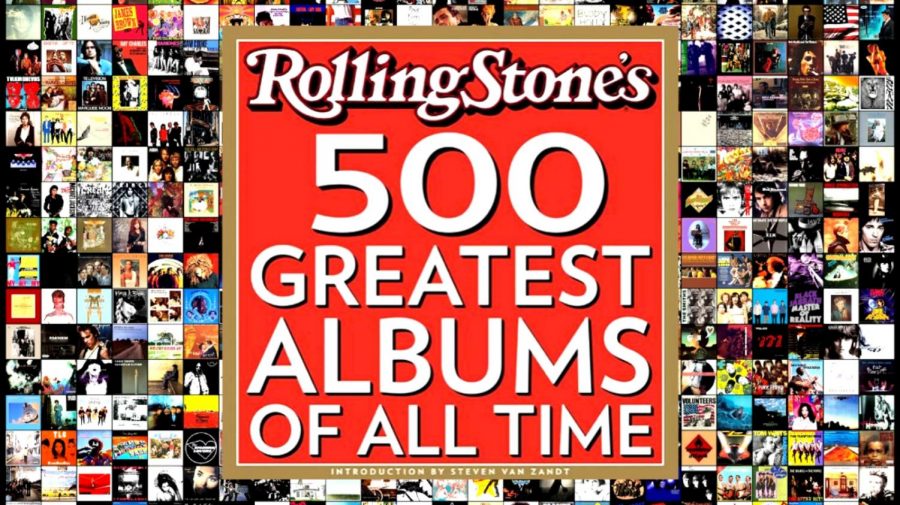






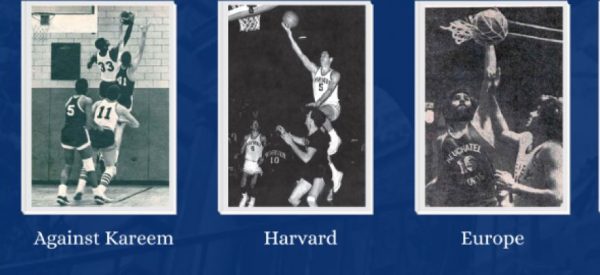


Stephen Madey • Jul 13, 2021 at 7:57 am
With all due respect to the opinion that Rolling Stone should put down their fading newspaper and put their spectacles away I must disagree with the notion that they have disregarded the current fan base. I have been a reader of the Rolling Stone since it’s inception and am a “child of the 60’s and 70’s. YES, I believe that the music amd musicians of the 70’s were that much better than those in the 2000’s. One only need to look at the volume of music produced during that time that has endured.Beatles, Stones, Airplane, Dead, Marley, Marvin Gaye, Aretha, Led Zepplin, Joplin, Hendrix to name a few have music that is recognizable to even the young person of today. They call it Cl;assic Rock for a reason….it has endured and, in my humble opinion, was more cogent and melodic than much of today’s music.
So, I am surprised that only 31.4% of the albums listed are from the 70’s I could add another 50 or so that would really skew the results.
Interesting to debate someday.
Steve